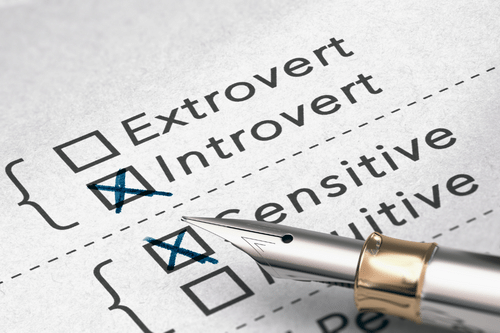Can You Diagnose Perfectionism?
Can depression go away? What about anxiety?
Understanding Your Emotional Health
How do I know if I'm depressed? Isn't depression for people who aren't tough enough to push through?
When my oldest child was born, I was worried I would have postpartum depression. I read about it and heard warnings about the various risks we'd face if I developed it. I remember fearing it, but I don't remember what I did to avoid it. Still, I know I was on the lookout for it, thinking it would be a bit like having an indicator light pop up on your dashboard. I would get the "Postpartum depression" indicator light, and we'd know we'd failed to prevent it.
Undiagnosed But Active Postpartum Depression
Years later, well into my final year of grad school, I learned I had experienced postpartum depression (PPD). I was in a day-long workshop on PPD, looking at a list of symptoms and typical experiences with the diagnosis. If I'd been a character in a movie, I would've fainted at that moment from recognition and shock.
I discovered that not only had I had PPD, but that I'd probably been at least moderately depressed throughout my life up to that time. And I learned that some of the stressors of early parenthood had undoubtedly made me feel worse and increased the severity of my depression.
I had improved a lot by then and didn't have a diagnosis of depression during its peak. Still, it has been a gift to understand this part of my history, even retroactively.
In many of my experiences, discovering a diagnosis has been a gift. I've even had medical diagnoses that were surprising to me ("You mean that's not normal??"), shifted my awareness and helped me improve my life.
We'll get into some downsides to diagnosis shortly, but my personal experience with them has been chiefly upside.
Click here to take a depression assessment.
And here’s one for anxiety.
Is Perfectionism a Diagnosis
First, though, let's be clear. Perfectionism is not an official mental health diagnosis. It's generally understood to describe a group of people who hold themselves (and sometimes others) to an impossibly high standard. Sometimes it's connected primarily to anxiety, in which case the standards usually prevent you from enjoying the accomplishment that comes from pushing yourself hard. Sometimes it's linked to depression, where the standards prevent you from even being able to get started with something. Why bother when it can't be perfect?
Most people think of the anxious type when they first think of perfectionism, but I have worked with both.
Do those categories sound arbitrary or poorly defined? They are! There do exist specific criteria for "perfectionism" that others have developed for research purposes. You may find those helpful or reductive. For my purposes, recognizing yourself as having high standards that cause problems in your life, is all I need to know to be able to help.
The Advantages of Receiving a Diagnosis
For me, getting a new label for my earlier experiences of depression was incredibly validating. I remember thinking, "oh, thank goodness! I did think that sucked, but I also thought that was just how life went!"
It's given me a chance to think over some of my early life and see lots of it in a new light - like watching The Usual Suspects or The Sixth Sense for a second time.
Mind. Blown.
Recognizing my earlier depression also makes it easier for me to relate to others. It also explains the behavior and experiences of people who aren't depressed!
Not Everyone Is an Introvert
Hear me out - personality tests are a lot like diagnoses.
Just like understanding that I'd been depressed was helpful to me, personality tests have helped me too. If you have ever taken the Myers-Briggs or the Enneagram, maybe you've had a similar experience. Having someone describe types of approaches and interpretations of the world shows you the shape of your life that had previously felt universal.
"Oh, you mean not everybody would always prefer to sit at home, quiet and comfy with a book when presented with the option to DO an ACTIVITY? Huh."
A Diagnosis Can Help Us See the Water We're Swimming In
Their power has come from their ability to highlight ways I'm different from other people.
Similarly, learning that I'd been depressed gave me a structure for thinking about myself. Oh, I was depressed! No wonder I struggled to structure my time and avoided other people! Oh, I have ADD? That explains why my mind wanders when my kids talk to me about video games! (Okay, that one probably IS universal.)
A Diagnosis Can Also Help Us Understand Ourselves Better
By grouping my experiences into patterns of behavior, I get the following:
Validation: "I'm not alone! If a label exists for this, someone else must've experienced it too!"
Insight: "Aha - when I do x, it's connected to the rest of this pattern."
A path to change: "not getting out of bed" is a sign of depression. If there are steps I can take to feel less depressed, they might help me get out of bed.
Before learning that I was an INFJ, I tended to unthinkingly assume that other people experienced the world just like I did. If you'd pressed me on it, I would have said, "Of course, everyone's different!" But then I'd be standing there dumbfounded when a friend suggested leaving the house to begin an activity at 9 pm. I am an introvert! I love cozy nights watching TV and going to bed early. How could it ever occur to a person to go dancing so late in the evening?!?
Again, I knew that my life and preferences weren't universal. Still, thinking about Myers-Briggs types helped me feel less surprised by or even critical of a specific person's behavior. They're a different type! That's why they're not acting like I would in their shoes!
Seeing my own traits summarized and simplified allowed me to see some of the benefits of my personality type and appreciate the advantages of other types.
The Downsides of Diagnosis (and All Categories)
Personality assessments and diagnoses have all kinds of problems.
For one thing, they're somewhat arbitrary. Imagine that an assessment score of 11 out of 20 indicates that you have Generalized Anxiety Disorder. What if you score a ten the following week - you no longer "have the disorder," but do you imagine that your experience of symptoms will have changed much in that week?
Does a Diagnosis Count As an "Ultimate Truth"?
They can limit you: if you fully adopt your specific type, you might believe the characteristics your assessment revealed are permanent and essential. The Enneagram, the OCEAN, and the Myers-Briggs all reduce complex human beings to types and acronyms.
It is conventional wisdom that your type is permanent. That assumption implies that this assessment is so accurate that it knows something about your essence that is true and lifelong.
Diagnoses Aren't Always Correct, and They Can Often Change
The same thing happens with diagnoses! Let's imagine you go to a doctor or therapist, and they assign you a diagnosis of Major Depressive Disorder (MDD). So many people believe this is a lifelong condition that even your clinician will likely think you're stuck with it!
I am not depressed anymore. I would have met the criteria for MDD for many years of my life, but I don't anymore. I'm not even a hardcore INFJ anymore!
The assessment questions didn't uncover an essential, everlasting truth about my being. They identified a pattern that was there at the time and had been for most of my life. But it wasn't a prophecy - it couldn't predict my patterns forever. As it turned out, I've decreased my social anxiety, and now I'm about half and half introverted and extroverted.
Do People Ever Change?
When people say that these characteristics don't change or that "people don't change," they have a point. We are all shaped by our experiences and adopt patterns of behavior based on what we've learned. Unless and until we experience something transformative, something that teaches us a new pattern, we will be predictable.
Then again, we've all heard stories about someone who has had a dramatic transformation. Maybe something big and traumatic happened in their lives, and they changed outwardly. Perhaps they found a job or relationship that was right for them, and it built them up, and you saw tons of changes because of that.
Change Can Happen Slowly
We also all inevitably change all the time. Think about the person you were ten years ago. Which things do you have in common with that person? How are you different? Of course, sometimes the changes that develop on their own aren't the ones most important to us, or even ones we'd choose if we could.
We Can Even Make Changes Intentionally!
Here's the exciting news, though: We can make intentional changes. We aren't at the mercy of a bolt from the blue that changes things dramatically; we don't have to wait for the steady erosion of time and hope it makes changes we like.
Changing our thoughts has the power to change core things about us in ways that ripple out into all the different aspects of our lives. A good experience with therapy will give you the power to decide what changes you want to make. You can, on purpose, become more idealistic, more decisive, or more perceptive (those are all from descriptions of different Enneagram Types).
Diagnosis Has Its Place, But It’s Not Perfect, and It’s Not Forever
So the practice of grouping people by shared characteristics (as in diagnosis and personality tests) has a lot to offer. Still, if we treat their conclusions like deep and unchanging truths, they might hold us back. It might also cause us to reduce other people to their grouping: "Oh, yeah, of course he said that: he's such an ESTJ." Or, in mental health terms, "I'll never enjoy life; I have depression," or "what can I say? I'm just a perfectionist."
If those are choices made knowingly, I'm on board. There are benefits to accepting ourselves just as we are. But if we slide into those labels because someone told us they're permanent or inevitable, true to the core, that they capture the most important things about us and are out of our control, diagnosis becomes harmful.
Changing our thoughts (and ourselves) is challenging to do. It takes effort and time to learn how to do it dependably. There’s a process to developing new thoughts we genuinely believe, not just "fake-it-til-you-make-it" nonsense. I have seen so much joyful transformation as a result, though. My clients have experienced it, my colleagues have, and I have too. If you're curious about what this would look like for you, schedule a consultation to find out more.
Cheryl Delaney, MS, LPC
Cheryl Delaney is a therapist who specializes in perfectionism and offers online mental health counseling in the state of Georgia. She loves that therapy means laughing and crying with her clients. When she’s not working, Cheryl is probably listening to a podcast or playing Legend of Zelda: Tears of the Kingdom.










